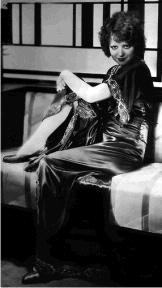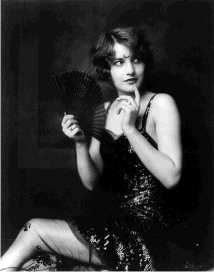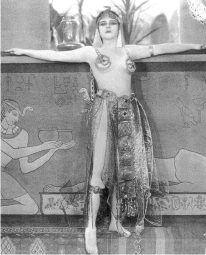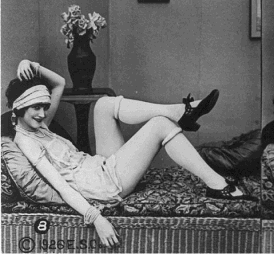1920s Sex: Lust & Sexuality in the Roaring Twenties
Everything changed in the Roaring Twenties. 1920s sex was revolutionized with the widespread use of the motorcar and the steaming actors and actresses on the Silver Screen.
Everyone, it seemed, was talking about sex. It was on people's minds, the young peoples' and the older generation's.
On college campuses the upper-classmen advised the Freshman and Sophomores to "moderate" the amount of "petting" they did.
"Nice" Girls Do?
Researchers began looking at sex in the 1920s. Colleges were full of young women and men who admitted freely that their weekends were full of "petting parties."
 Clara Bow - Sex Symbol & The "It" Girl of the 1920s
Clara Bow - Sex Symbol & The "It" Girl of the 1920sThis may or may not have been the truth, but the social implications were that these students didn't want people to think they were against having sex. That would have been prudish.
"It's terribly exciting. We get such a thrill. It think it is natural to want nice men to kiss you, so why not do what is natural.
These were the words of an attractive female college student in the mid-1920s.
There was little embarrassment on the part of the youngsters when it came to sex in the 1920s.
The "Sex Novels" of the 1920s - Birth of The Femme Fatale
 What Are You Thinking About? Sex in the 1920s
What Are You Thinking About? Sex in the 1920s"You can call this sex excitement if you like, but it is sex-excitement of a secretive, furtive sort, quite special." --D.H. Lawrence Pornography and Obscenity (1929)
With sex on everyone's mind it's not surprising that many books would be sold to a populace obsessed with sex. Like many aspects of the 1920s, the best selling novel was a new invention of the time.
The "sex novel" as it became known, reflected the shifting moralities of the 1920s.
With the femme fatale, feminine sexuality came into it's own. Critics and moral pundits screamed from every rooftop about the loosening morals of American society, while the "immoral" writings of D.H. Lawrence flew off the shelves.
"The collective mind of contemporary society is now impregnated with a new consciousness of sex,"
said Elizabeth Drew speaking about 1920s sex. The whisper behind closed doors was that women, more than men, were the primary readers of these escapist novels.
Newspapers decried this new literature, calling it "pornocrasy" and "vile." Writers like Sir Philip Gibbs, Gilbert Frankau, Elinor Glyn, and H De Vere Stackpole (author of The Blue Lagoon) were all lambasted as "sex novelists."
Stories of adulterous sado-masochistic wives being ravaged by caveman and passionate trysts on deserted islands became the light reading of bored housewives and young girls looking to escape for a few hours.
The Movies - The Birth of the Worldwide 1920s Sex Symbol
As the novel matured, the movie industry was coming into it's sexual adolescence.
Film put 1920s sex onto the screen in front of millions of viewers. Nothing like this had ever been seen before.
The movies made sex more accessible, more real. Beautiful stars like Greta Garbo, Colleen Moore, Clara Bow, and Louise Brooks dripped sex appeal.
"The persona of the actress is sex incarnate," says Billie Melman in the book Flappers and Nymphs.
 "Sex Incarnate?" Theda Bara in Cleopatra (1917)
"Sex Incarnate?" Theda Bara in Cleopatra (1917)The movies popularized beauty, and the consumer culture of the 1920s rapidly expanded with more and more women wanting to emulate their idols on the screen.
The Flapper - The Birth of the Sexually Empowered Real Woman
 Does she look dangerous to you?
Does she look dangerous to you?The world growing into it's sexuality did not come without some growing pains. Women, especially young women, were under intense scrutiny to adhere to the social morals of the time.
Everything was criticized, her looks, her manners, her sexual behaviors, her vote....
Obviously under this type of scrutiny people will rebel, just say "screw it I'm going to do what I want to do."
That was the flapper, pleasure for pleasure's sake, freedom from bondage (or something like that), the flapper became the independent modern woman. Independence meant freedom from society's rules:
"It comprises the frivolous, scantily clad 'jazzing flapper', irresponsible and undisciplined.... There is a large proportion of physically attractive girls with strong reproductive habits and they are ever vying and competing with each other for the scarce and elusive male."
Sex was becoming more and more powerful as it was promoted around the globe, in newspapers, in movies, in the everyday dress of women. And in many ways, as women embraced their femininity, men became more effeminate.
